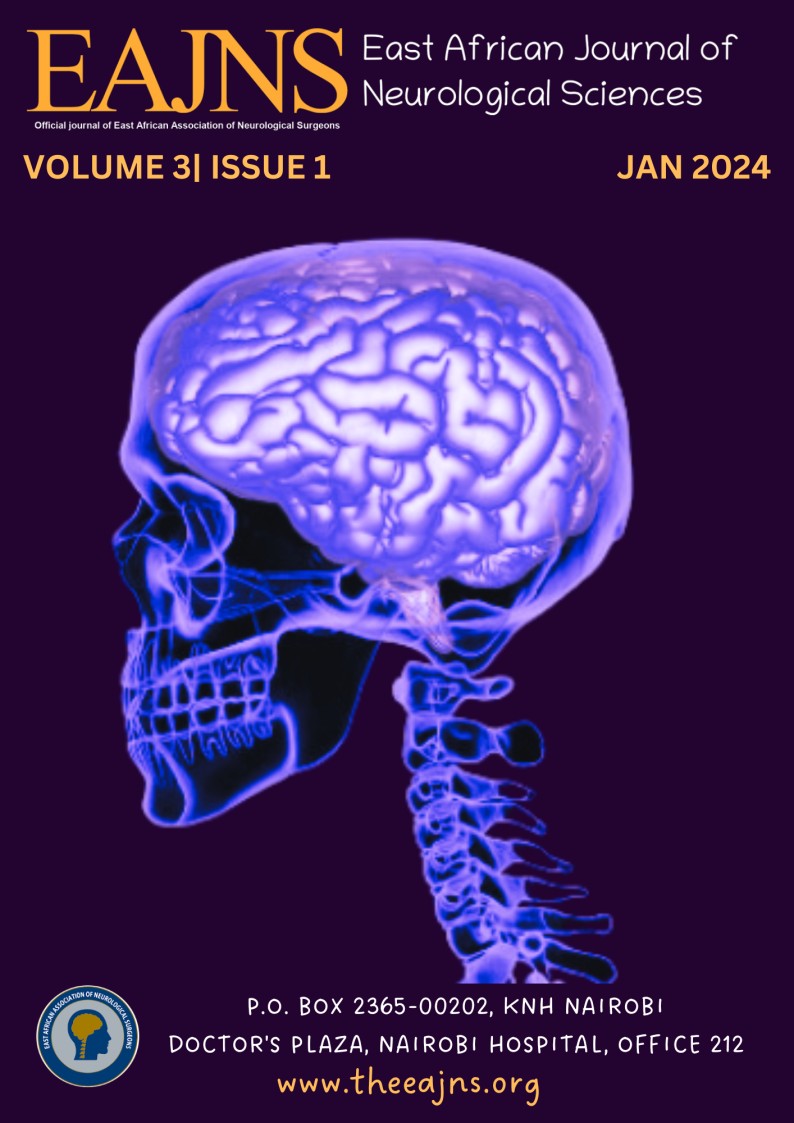Main Article Content
Conus Medularis Neuroschistosomiasis In A 12-Year-Old Boy
Abstract
Introduction: Neuroschistosomiasis, an infrequent consequence of schistosomal infection, typically presents with deteriorating motor and sensory function coupled with sphincter dysfunction. Diagnosis involves a clinical history, physical examination, cerebrospinal fluid studies, and imaging.
Case report: We detail the case of a 12-year-old boy hailing from Machakos County, who manifested lower limb weakness and urine retention for two weeks. Examination unveiled diminished lower limb tone and areflexia, with a power grade of 0 in distal muscles below the knee and normal muscle bulk. Magnetic resonance imaging revealed a cauda equina region tumor. Subsequent histopathology after tumor-debulking surgery unveiled schistosomal-associated necrotizing granulomatous inflammation. Following tumor resection at T1-L1 and receipt of histopathology results, the patient underwent optimum pain management and praziquantel therapy. Clinical improvement ensued, albeit with distal paralysis.
Conclusion: Our case highlights the necessity of heightened suspicion for cauda equina tumors in young patients from schistosoma-endemic regions, advocating early diagnosis and management involving praziquantel treatment.







